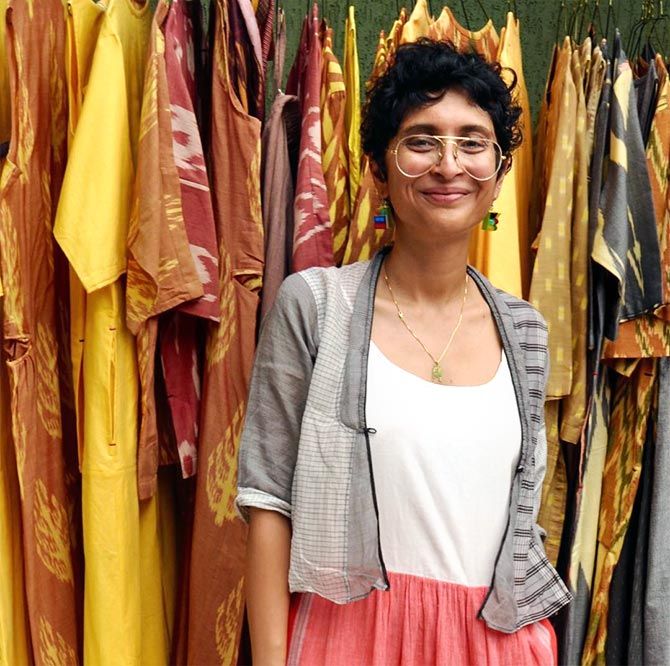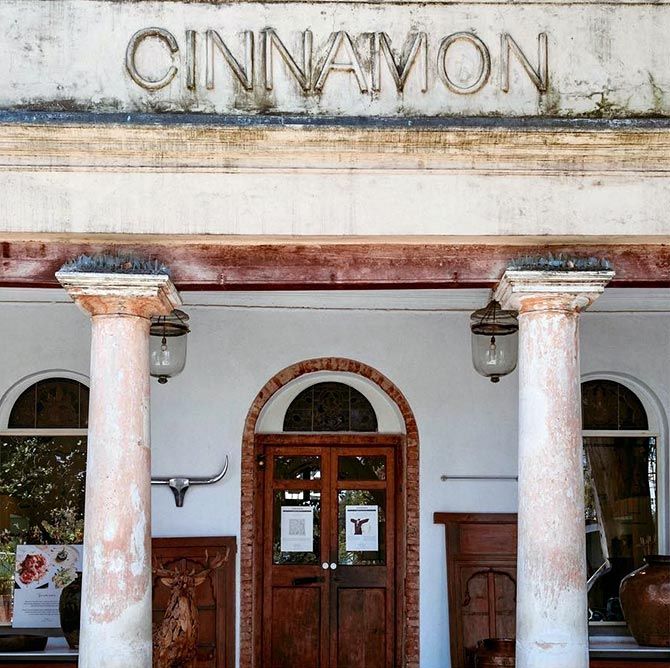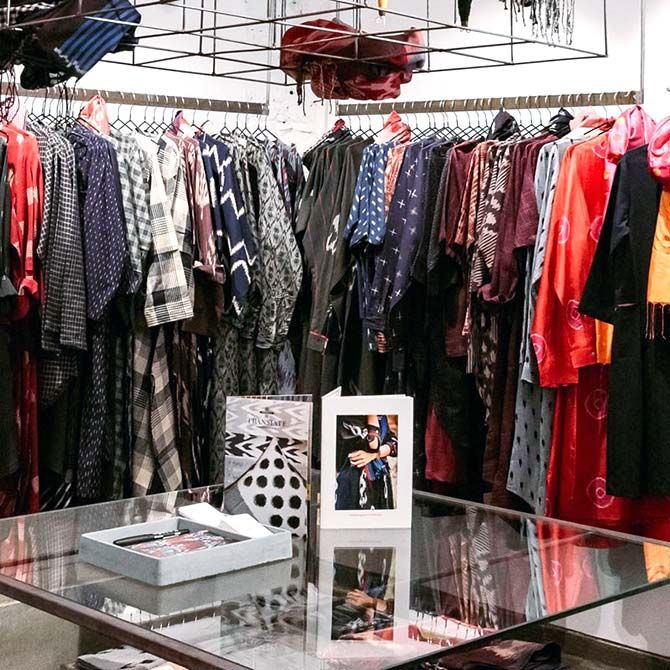One of the first things to strike one about Cinnamon, a 19-year-old designer boutique hub, is its architecture and feel.

A short drive from Hyderabad, in and around Pochampally, are clusters of families who for generations have bequeathed a tradition of handloom weaving to their young ones.
They now spend their days weaving ikat patterns into contemporary outfits aimed at shoppers with minimalist leanings.
To combat the greyness of a long knee-length open jacket, in one instance, the weavers chose peach and pale yellow.
With pockets on either side, the jacket instantly becomes something the modern urban woman can wear to office, or throw over a tunic for a chic evening out.
Several organisations are helping families like these sustain their craft and give shoppers the luxury and convenience of smart, easy-to-wear clothing.
One of them is Translate, a Hyderabad-based label that's about eight years old.
Co-founded by the entrepreneur duo Vinita and Vikas Passary in 2010, the label focuses mainly on warp, weft and double ikat.
After Hyderabad, Delhi and Mumbai, Translate has found a new home in Bengaluru, next to the pebbled courtyard-café in Cinnamon, the lifestyle store.
One of the first things to strike you about Cinnamon, a 19-year-old designer boutique hub, is its architecture and feel.

The heavy wooden doors in the bungalow themselves are a testament to a bygone age.
Tucked away in a quiet lane, the bungalow was built in the 19th century and served as an orphanage run by a social reformer and philanthropist grandly named Dharmarathnakara Rai Bahadur Arcot Narrainsawmy Mudaliar.
When Abhishek and Radhika Poddar, who also run the Tasveer art gallery, bought the property, they ensured that the old-world aesthetic of the bungalow remained intact.
And much like the Cinnamon experience, Translate's ikat offerings are a testament to how to retain old-world charm in contemporary living.
"People are ready to pay for ikat because they think it's trendy, but very often they also assume it's a print, not a weave," says Vinita Passary.
Ikat has always been popular, says Radhika Poddar.
"Though previously its demand was restricted mainly to clients who were aware of the weaving technique, more recently it has become easily available and therefore is far more visible," she says.
Over the years, Cinnamon has nurtured relationships with labels like Peachoo and akaaro, as well as designers like Payal Khandwala who have opted to house their label under Cinnamon's roof in Bengaluru.
"Since its inception, Cinnamon has championed the same design philosophy and focused on basic, simple and classic designs," says Poddar. Translate's minimalist weaves thus find themselves perfectly at home in Cinnamon.

In the years that Translate has been around, Passary has seen many more people warming to ikat textiles.
"There's been an upsurge in the demand for handcrafted textiles in India as well as internationally, so more and more people have begun to pick up the material," adds Passary.
From cotton saris starting at ₹ 10,000 to silk weaves priced upwards of ₹ 20,000, Translate is for the smart urban shopper.
Mid-length tunics and wide-legged bottoms continue to be favourites at Translate, but their bestsellers are the anti-fit dresses (priced from ₹ 6,500).
Translate also uses the micro spun-variety of material for their clothes. "The micro spin yarn is slubby in nature, so it adds a certain texture.
There's a slight coarseness which makes the tactile experience of the weave more profound. It adds character to your clothes," says Passary.
These micro spin variations, she explains, are better suited to cooler climes as opposed to the summer weaves that demand a higher thread count.
This summer, the design label’s collection boasts a palette comprising mango, peach and apricot juxtaposed against classic neutrals of grey and off-white.
An ikat shift dress, or an ikat crop top, teamed with plains or plaids, is a pretty cool way to beat the summer heat.











